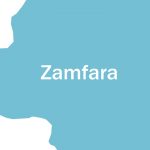European Investment Bank Announces Launch Of New Fund For Africa
African News, Europe, Latest Headlines, News From The State Thursday, June 2nd, 2022
(AFRICAN EXAMINER) – European Investment Bank (EIB), the long-term lending institution of the European Union (EU) has announced the launch of the new European solidarity financing fund for Africa also known as FEFISOL II.
FEFISOL II is making its first closing at of €22.5 million, and a technical assistance package of €1 million euros from Proparco via FISEA+ with the final objective of raising 6 million euros. The 2nd closing will be launched in 2023. The first disbursements will be made in July this year.
Following the success of the first FEFISOL fund, which closed in July 2021, its promoters, the social investors SIDI (Solidarité Internationale pour le
Développement et l’Investissement) and Alterfin, have structured this new fund dedicated to financing African rural microfinance institutions and agricultural entities sourcing from small-holder farmers in Africa.
The EIB, Proparco via FISEA+ (the AFD Group’s facility implemented by Proparco as part of the Choose Africa initiative), the Belgian investment company BIO, the Alternative Swiss Bank, Crédit Coopératif, Banca Etica and SOS Faim Luxembourg have recently signed up for a stake in the fund.
The FEFISOL II Fund is designed to respond to the crucial issues of financing vulnerable populations in rural areas in Africa, and more particularly the financing of the agricultural sector.
Today, the penetration rate of microfinance in rural areas in Africa remains very low: less than 5 percent of the loans disbursed by traditional financial institutions are intended for the agricultural sector and less than 10 percent of farmers have access to formal sources of credit.
Managed by Inpulse (a Brussel-based investment manager, subsidiary of Crédit Coopératif and SIDI), FEFISOL II is structured to financially and technically support locally designed solutions to these challenges.
The 1st FEFISOL fund successfully closed in 2021, validating the innovative approach adopted at its launch. FEFISOL I has had considerable impact over the past decade with €86,5 million euros disbursed, of which 93 percent in sub-Saharan Africa, 60 percent in low HDI countries and 90 percent in countries vulnerable to climate change;
Moreover, it achieved 75 percent of average outstanding loans in local currency; 92 clients financed in 25 countries and 139 technical support projects carried out with 51 clients.
The positive outcomes of the first fund have convinced investors to invest in the new FEFISOL II fund. In addition to SIDI and Alterfin, which are contributing of €4.8 and €2 million respectively, the EIB and the private sector subsidiary of the French Development Agency, Proparco, are each investing of €5 million.
The French social bank Crédit Coopératif and the Italian Banca Etica have also renewed their commitment. Finally, new investors have joined the initiative: the Belgian investment company for developing countries BIO, the Alternative Swiss Bank (BAS), as well as the NGO SOS Faim Luxembourg.
These commitments will allow the Fund to pursue and deepen its social mission. FEFISOL II will be able to build on the experience and the client base it has acquired, focus its efforts on the quality of the services to be provided and thus be even more ambitious in terms of social and environmental performance.
FEFISOL II will be implemented in more than 28 African countries and should eventually support 110 microfinance institutions or agricultural companies and cooperatives sourcing from smallholders, most of which are Fair Trade or organic certified.
The new fund will offer diversified and adapted financial products, in 12 to 15 local currencies in order to avoid exposing partners to exchange rate risk and will implement specific assessment and monitoring tools for agro-ecological performance.
FEFISOL II will also propose a new technical assistance facility with a more in-depth scope and upgraded procedures. Its aim will be to support its partners in strengthening their institutions and their resilience to climate change.
By supporting the implementation of socially and environmentally sustainable practices, FEFISOL II directly aims to improve the living standards of vulnerable populations in rural Africa, reduce inequalities and promote sustainable agricultural development.
The agricultural sector, however accounts for 23 percent of the continent’s Gross Domestic Product (GDP) and 55 percent of employment. Despite increasing urbanization, almost 60 percent of the population of sub-Saharan Africa, lives in rural areas.
On the continent, family farming plays a major role, whether in terms of the number of farms (100 million family farms are located in the 47 countries of sub-Saharan Africa) or in terms of employment (75 percent of the sub-Saharan population is involved either directly (production) or indirectly (processing) in agriculture) or as an important source of value added.
In addition, family farming is also key in terms of environmental issues, and contributes directly to the preservation of biodiversity.
Financing the agricultural sector is therefore of uttermost importance in terms of food security, employment, resilience in the face of climate change, and
finally, in terms of the financial inclusion of women who, even though they represent more than half of the agricultural workforce, often do not have the same access to financing as men.
Notwithstanding the fact that the agricultural sector makes a major contribution to many African economies, and that its growth directly contributes to poverty reduction, it remains financially underserved because it is often perceived as too risky or not profitable enough.
Related Posts
Short URL: https://www.africanexaminer.com/?p=77488




















